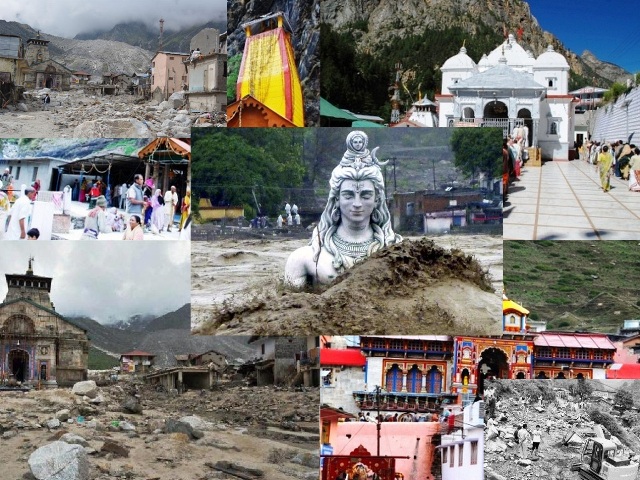Dehra Dun : Congress vice president Rahul Gandhi’s speech at the Parade Ground here yesterday that the roads and necessary infrastructure in the ‘tsunami’ hit higher reaches of this small mountain state will be in place before the start of the tourist season and his advice to chief minister Harish Rawat to work 20 hours a day may have brought cheer to the thousands of stake holders of the char dhaam yatra, but apparently it is a far cry, if the goings on at the grass root level are any indication.
Obviously the Gandhi scion, who sent his hand-picked man to replace former chief minister Vijay Bahuguna wanted to impress the large gathering that Rawat was working overtime when he said that the chief minister is putting in 18 hours of work every day, but needs to put in 20 to meet the deadline for the tourist season, but apparently he was not aware of either the terrain or the babudom, whose manner of working has left much to be desired ever since Uttarakhand came into being 13 years back.
True, everyone wants the char dhaam yatra to start on schedule with the doors of the Badrinath shrine slated to open on May 5 and the date of the Kedarnath temple to be announced on Mahashivratri, that is Feb 27, as not only the very future of the stakeholders and their families are dependant upon it and the entire economy of the higher reaches of this small mountain state revolves round the yatra. But the snail’s pace at which the work has been going on till now is a dampener.

To cite how seriously are the chief minister’s words taken and how does the babudom of this small mountain state work, is the call given by Harish Rawat to remove the garbage from the Rispana and Bindal rivulets that run through the heart of the state capital.
They were once rivers and a natural drainage system for the water of the city during the monsoons and heavy rains, which prevented water from collecting on the roads, but have been reduced to literally drains today.
There was a lot of cheer on the chief minister’s call as not only are the two river beds overflowing with filth and garbage in the heart of the state capital an eye sore now, but every monsoon, the people living in the large number of illegal constructions that have come up on both sides of the two rivers live in perpetually fear that heavy rains could cause the water levels to rise menacingly and wash away houses taking valuable lives.
Besides the residents of the city also felt that the water-logging that is now become a common phenomenon even after a normal drizzle on the roads of the city would be a thing of the past as the rain water would flow down into the two rivers which were once a natural drainage of excess rains.
And work for cleaning the Rispana river was taken up with zeal on Feb 10 with the urban development minister, principal secretary and vice chairman of the Mussoorie Dehra Devleopment Authority, to name a few staring the cleaning campaign.
But their enthusiasm was short-lived as was that of the number of students and other volunteers who volunteered for the effort. Two days later even the volunteers stopped coming and the Rispana is where it was before the clarion call made by the chief minister.

The VVIPs who came with much fanfare on the initial day are now back in their air-conditioned offices and not even 100 metres of the river was cleaned, despite the fact that almost 12 kms of the Rispana flows through the city.
According to the data collected by the state irrigation department in 2008 there are 6542 encroachments on the Rispana river encompassing an area of 82.34 hectares. Of these 6542 are pucca constructions and 682 temporary shelters or hutments. The spate of the Bindal is no different.
There are 4266 encroachments, of which 3516 are pucca constructions and 750 temporary shelters or hutments, besides eight slum colonies have also come up on the river bed. In the six years since the data was collected, the number of encroachments has only gone up.
While there are no doubts to the intentions of the chief minister in expediting the works and restoring the infrastructure on the char dhaam yatra route, something which even Rahul Gandhi impressed upon at his recent public rally in the city, but neither is there the political will, nor is the babudom of this small mountain state geared up to work at a break neck speed to meet the deadlines.
A journalist with over 40 years of experience, Jagdish Bhatt was Editor, Hill Post (Uttarakhand).
Jagdish had worked with India’s leading English dailies, which include Times of India, Indian Express, Pioneer and several other reputed publications. A highly acclaimed journalist, he was a recipient of many awards
Jagdish Bhatt, aged 72, breathed his last on 28th August 2021 at his Dehradun residence.



